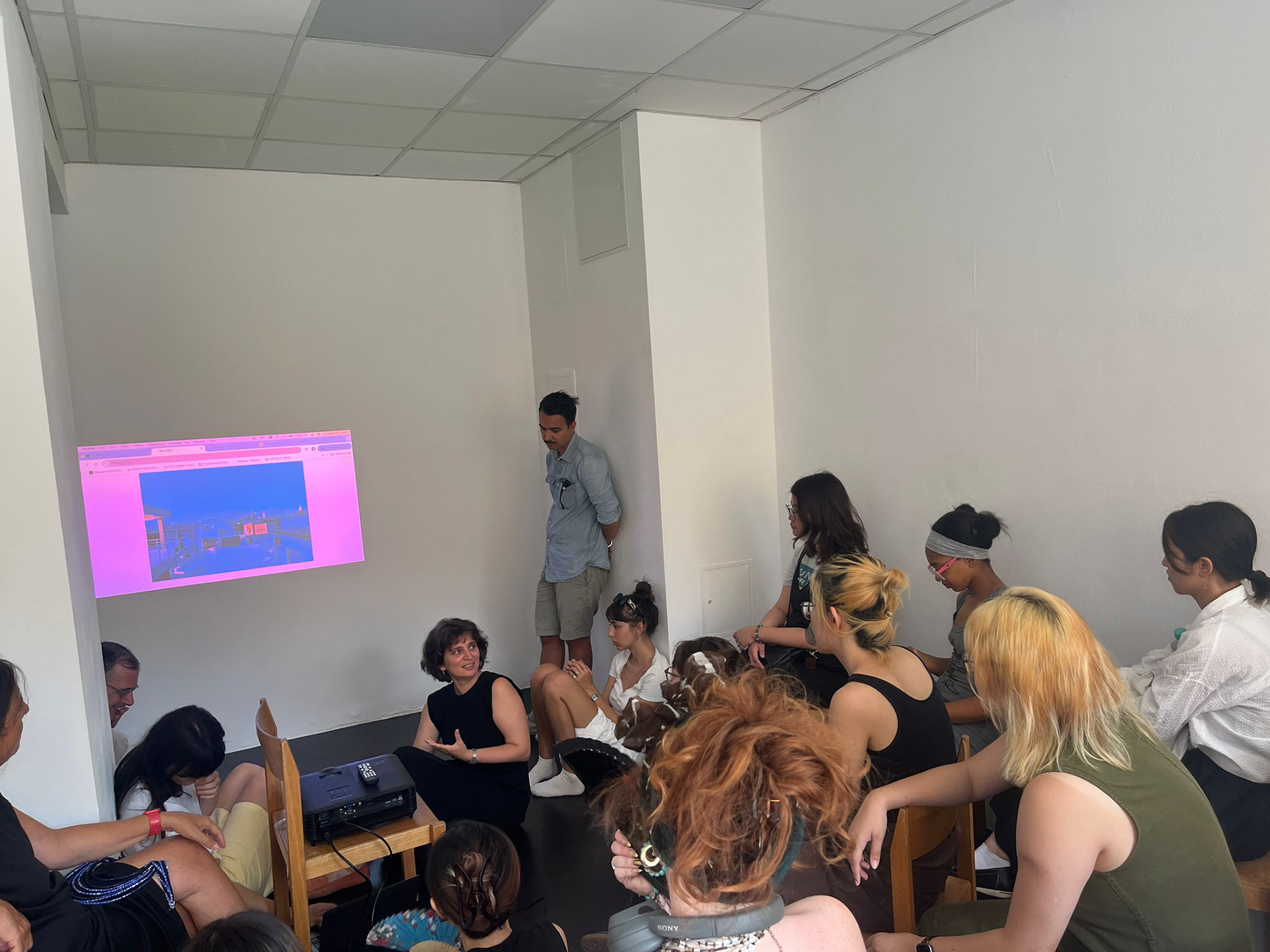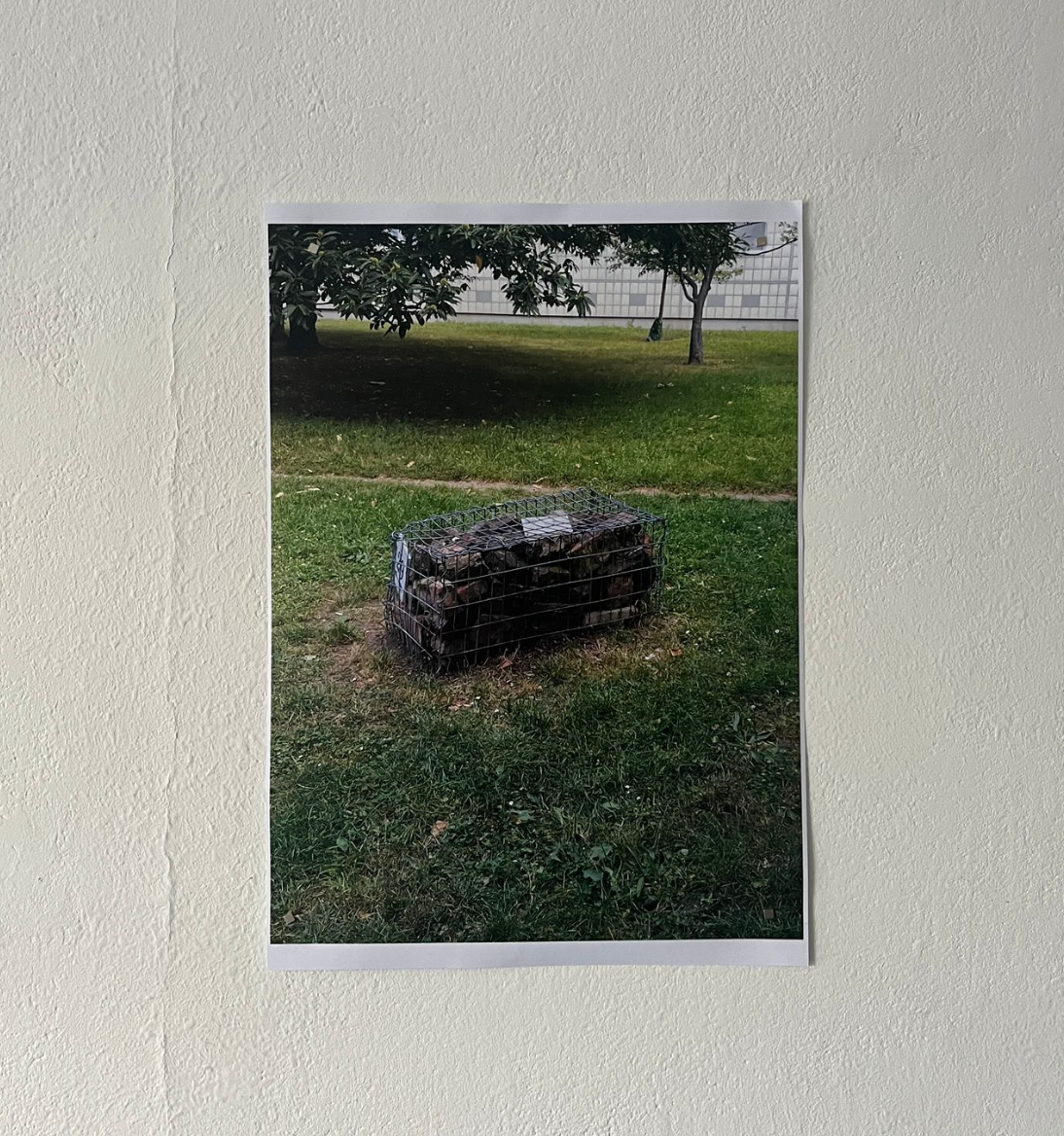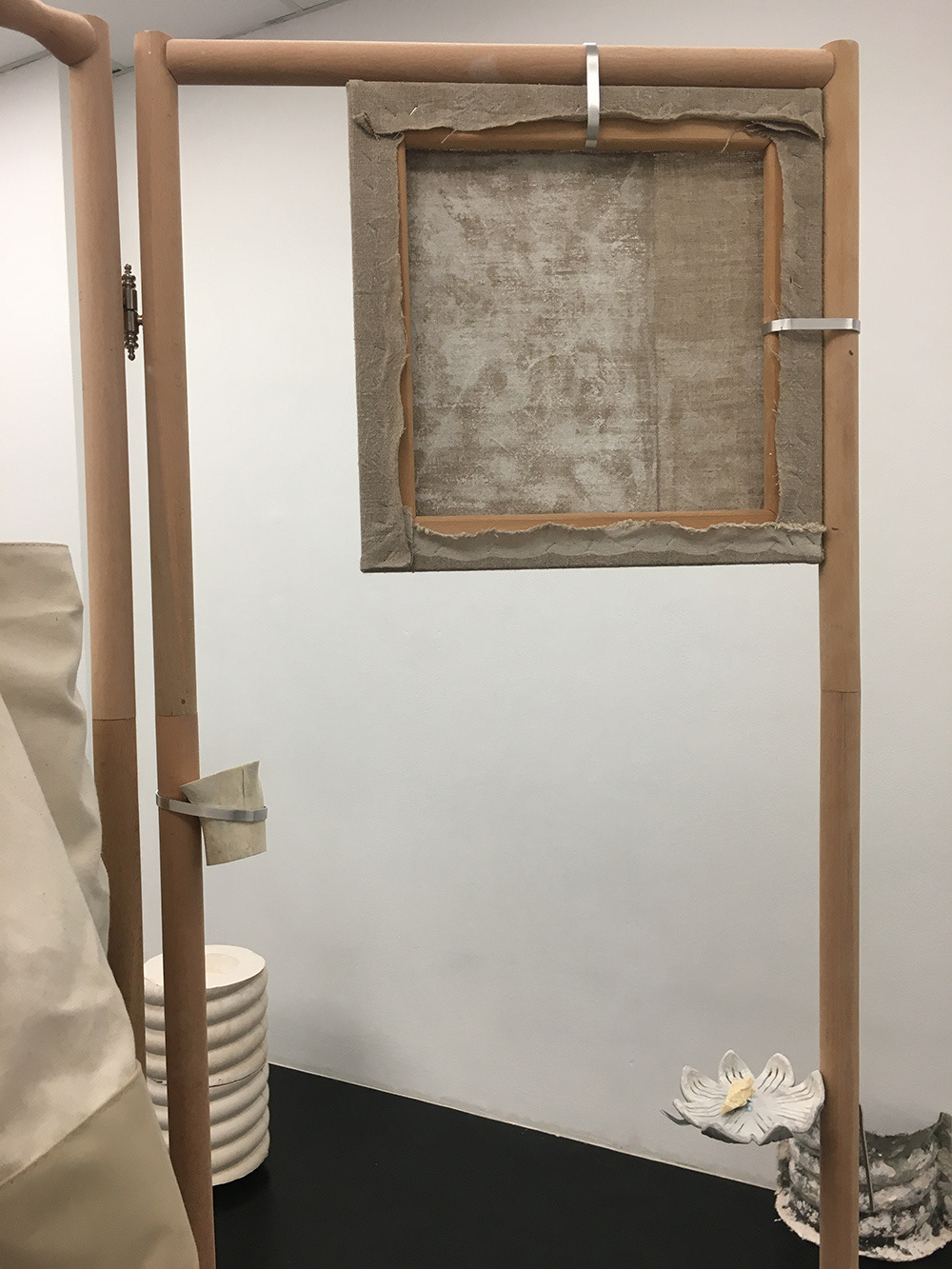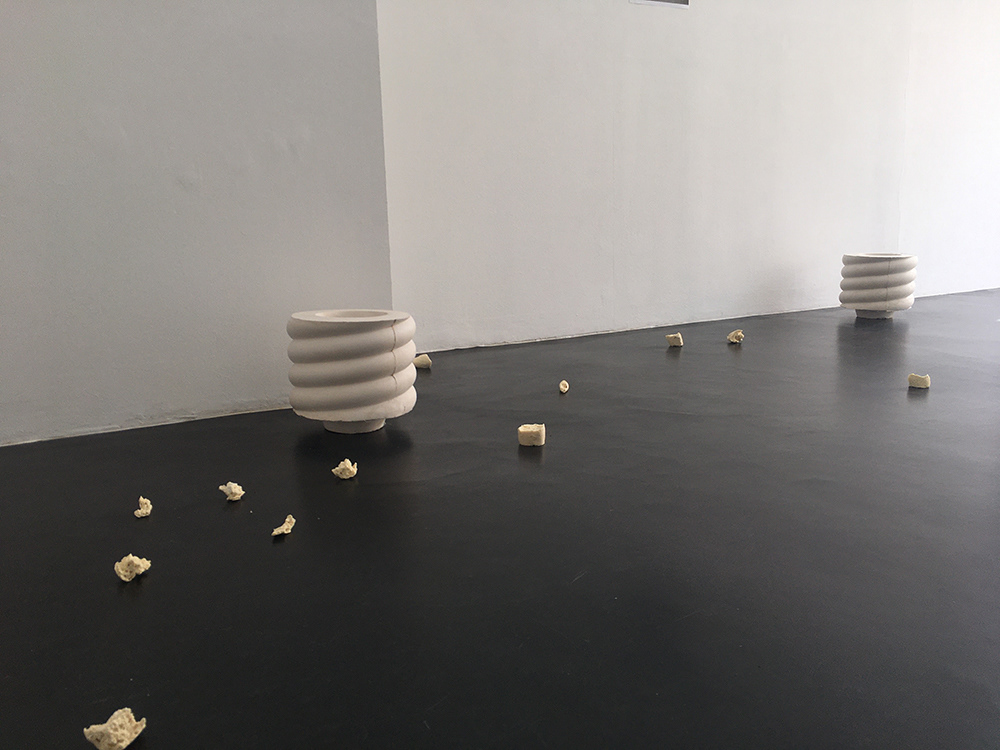This August, artists and founders of the Istanbul project space Non.Sight, Merve Denizci and Doğancan Yılmaz, will be in residence at Stations. This marks the first installment of an exchange with Non.Sight, which will continue in September in Istanbul with a show by Romanian artist Ana Botezatu, curated by Stations.
As part of their residency, Merve and Doğancan will embed their artistic practice in the local context of Berlin-Kreuzberg—a neighborhood shaped by layered histories and cultural flux. Stations will be sharing its space, infrastructure, and network, supporting the artists as they navigate this new context, and connecting them with local communities. In working within a new environment, the two approach the space as both a transit station and a site for negotiation, engaging in site-specific research, informal knowledge exchange, and temporary community formation as central components of their process. Rather than focusing solely on outcomes, Merve and Doğancan explore spatial narratives and the material and immaterial traces of the site. Dedicated time and space at Stations will allow for reflection, collaboration, and cultural exchange, as well as interaction with new audiences. The residency will conclude with a public presentation of their research, talks, or interventions—understood as forms of mediation that are integral to the work itself. In this hybrid and transitional space, Merve and Doğancan continue their ongoing inquiry, exploring how artists generate new sites of reflection and propose alternative models of artistic presence.
Fieldwork and architecture are core themes in Merve and Doğancan’s artistic research at Non.Sight, a shared spaces of their everyday lives—places where people spend significant time, witness events, and interact with one another. This environment offers a rich terrain for observing the traces of culture and sociology, making them central to their artistic methodology. During their time at Stations, they will continue this exploration—learning through doing, navigating unfamiliar places, and shaping a dialogue between the built environment and the lived experience within it. A key part of their research will involve tracing architectural synergies between IMÇ in Istanbul and Zentrum Kreuzberg in Berlin—two modernist complexes that carry distinct social, political, and cultural resonances, yet echo one another in form and function. This comparison will serve as a lens through which to examine the translocal narratives embedded in urban space and architecture.
Non.Sight was founded within the IMÇ complex (İstanbul Manifaturacılar Çarşısı / Istanbul textile retail center)—a modern architectural landmark in the district of Fatih in Istanbul, where local heritage intersects with global sensibilities. Rooted in this historically rich and culturally vibrant setting, Non.Sight seeks to provide an accessible platform for experimental contemporary art. In 2021, artists Merve Denizci and Doğancan Yılmaz rented a unit in IMÇ Block 6, No. 6637, intending to use the space not only as a year-round living and working studio, but also as a venue for exhibitions and events. From this initial gesture, Non.Sight emerged as a space built by and for artists—supporting a more inclusive and collaborative art environment. Non.Sight is conceived as a space for living, creating, presenting, and encounters. It offers artists time, resources, and physical space to support their practices in a flexible and self-determined way. Responding to the global decline of independent art venues and the increasing competition for institutional support, Non.Sight champions collective collaboration. With a focus on artists’ fundamental needs—such as visibility, exploration, and production—it aims to establish a sustainable, space-based model for artistic practice. Situated in IMÇ, which is gradually transforming into an alternative hub for the arts, Non.Sight seeks to weave its environment and local context directly into the creative process.
As part of their residency, Merve and Doğancan will embed their artistic practice in the local context of Berlin-Kreuzberg—a neighborhood shaped by layered histories and cultural flux. Stations will be sharing its space, infrastructure, and network, supporting the artists as they navigate this new context, and connecting them with local communities. In working within a new environment, the two approach the space as both a transit station and a site for negotiation, engaging in site-specific research, informal knowledge exchange, and temporary community formation as central components of their process. Rather than focusing solely on outcomes, Merve and Doğancan explore spatial narratives and the material and immaterial traces of the site. Dedicated time and space at Stations will allow for reflection, collaboration, and cultural exchange, as well as interaction with new audiences. The residency will conclude with a public presentation of their research, talks, or interventions—understood as forms of mediation that are integral to the work itself. In this hybrid and transitional space, Merve and Doğancan continue their ongoing inquiry, exploring how artists generate new sites of reflection and propose alternative models of artistic presence.
Fieldwork and architecture are core themes in Merve and Doğancan’s artistic research at Non.Sight, a shared spaces of their everyday lives—places where people spend significant time, witness events, and interact with one another. This environment offers a rich terrain for observing the traces of culture and sociology, making them central to their artistic methodology. During their time at Stations, they will continue this exploration—learning through doing, navigating unfamiliar places, and shaping a dialogue between the built environment and the lived experience within it. A key part of their research will involve tracing architectural synergies between IMÇ in Istanbul and Zentrum Kreuzberg in Berlin—two modernist complexes that carry distinct social, political, and cultural resonances, yet echo one another in form and function. This comparison will serve as a lens through which to examine the translocal narratives embedded in urban space and architecture.
Non.Sight was founded within the IMÇ complex (İstanbul Manifaturacılar Çarşısı / Istanbul textile retail center)—a modern architectural landmark in the district of Fatih in Istanbul, where local heritage intersects with global sensibilities. Rooted in this historically rich and culturally vibrant setting, Non.Sight seeks to provide an accessible platform for experimental contemporary art. In 2021, artists Merve Denizci and Doğancan Yılmaz rented a unit in IMÇ Block 6, No. 6637, intending to use the space not only as a year-round living and working studio, but also as a venue for exhibitions and events. From this initial gesture, Non.Sight emerged as a space built by and for artists—supporting a more inclusive and collaborative art environment. Non.Sight is conceived as a space for living, creating, presenting, and encounters. It offers artists time, resources, and physical space to support their practices in a flexible and self-determined way. Responding to the global decline of independent art venues and the increasing competition for institutional support, Non.Sight champions collective collaboration. With a focus on artists’ fundamental needs—such as visibility, exploration, and production—it aims to establish a sustainable, space-based model for artistic practice. Situated in IMÇ, which is gradually transforming into an alternative hub for the arts, Non.Sight seeks to weave its environment and local context directly into the creative process.
Stations



